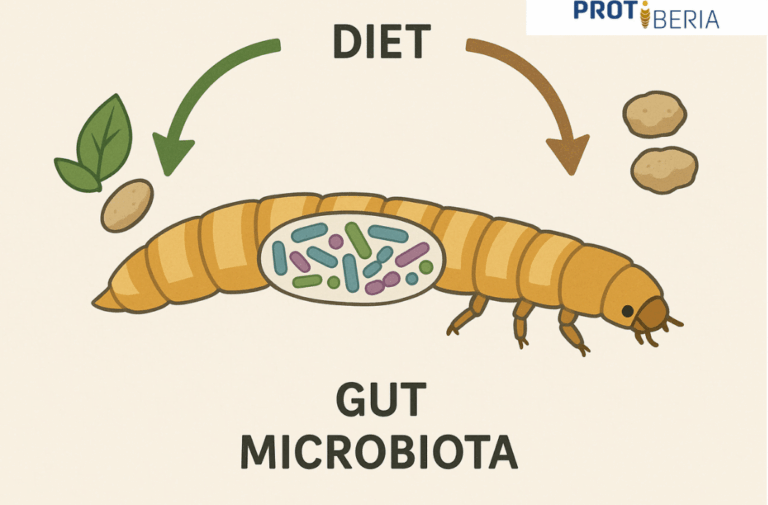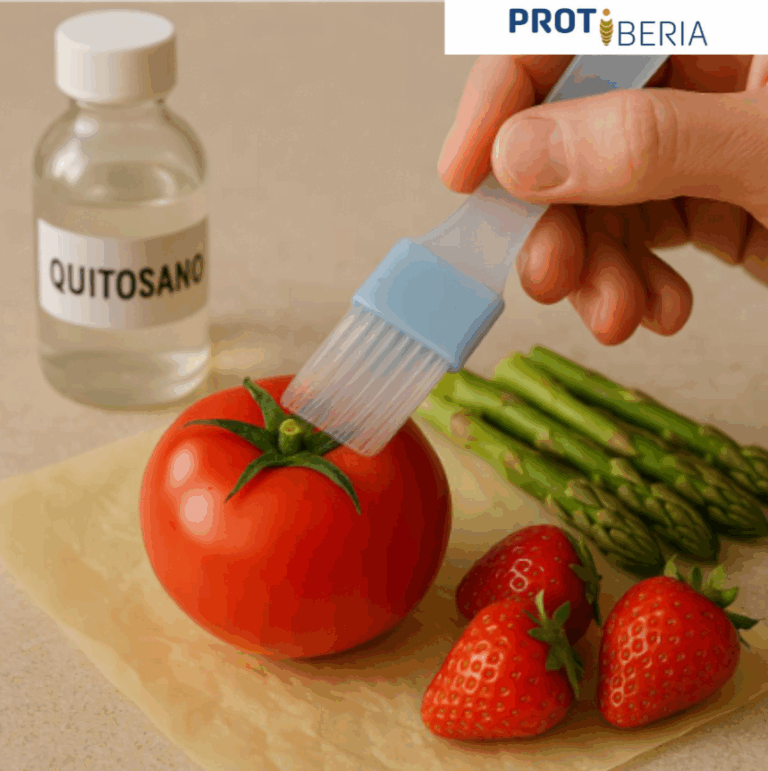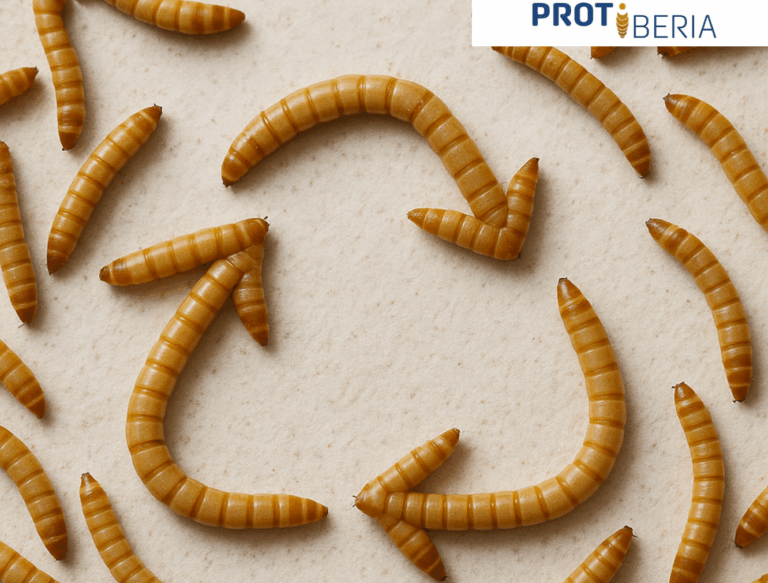| In addition to improving plant growth and health, certain biofertilizers are also capable of slowing down the appearance of pests and pathogens. This is the case with Tenebrio molitor frass, whose bacterial community makes it the perfect ally for our crops. |
When it comes to caring for our crops, it’s not only important to use products that enhance plant growth and health but it’s also necessary that they can prevent the potential emergence of pests and pathogens.
Traditionally, combating agricultural pests and diseases has always been associated with the use of chemical products such as insecticides (effective against insects), antimites (against mites), fungicides (against fungi), and herbicides (for weeds).

However, the excessive use of these chemicals implies a series of dangers to both the environment and health, since they can leave toxic residues in fruits and plants that are later consumed by humans. Therefore, there is an increasing trend towards other types of pest control and prevention measures that rely on ecological, sustainable, and natural methods.
For example, the frass of the mealworm has not only proven to be a potent biofertilizer but also has the ability to induce certain resistance to fungi and pathogenic bacteria in plants.
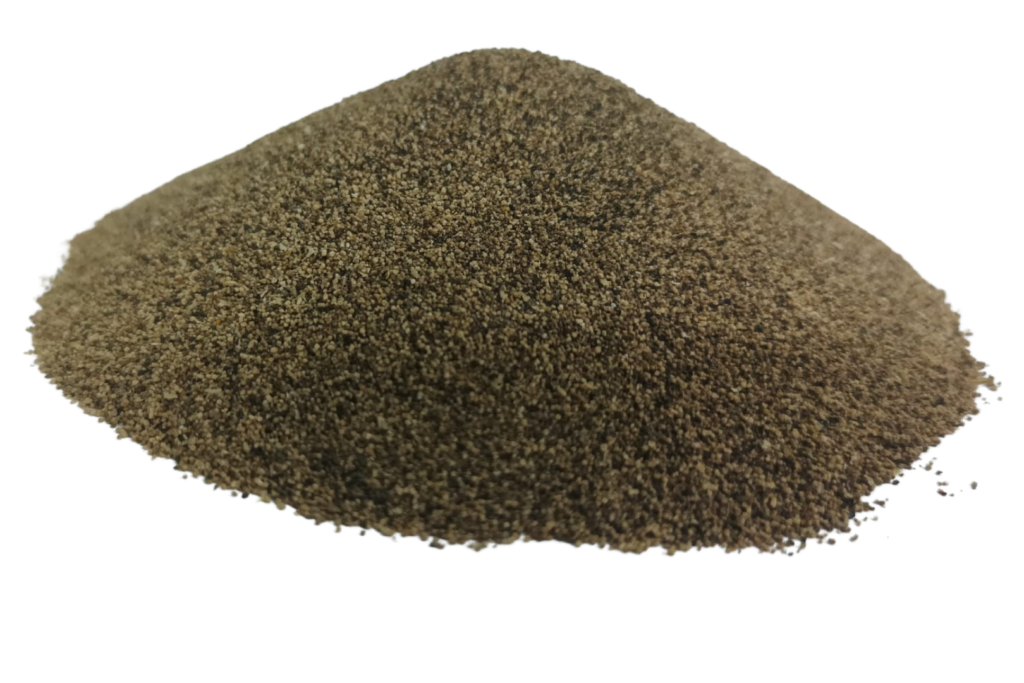
But what is the secret of the frass? How can it combat pests? Well, apparently the answer lies in the microbiota of the Tenebrio, a series of beneficial microorganisms naturally present in the insect’s intestine and feces.
Study of the microbiota of the Tenebrio molitor insect
The microorganisms present in the frass can provide so many benefits to plants that they are collectively known as bioprotectors or biostimulants.
For example, within the microbiota of the mealworm (Tenebrio molitor), the following bacteria are of great importance due to their positive effects in agriculture:
- Paenibacillus: They promote plant growth by enhancing nitrogen supply, nutrient absorption, phosphate solubilization, and resistance to drought and salinity. Additionally, they also exhibit antifungal activity against pathogenic fungi.
- Bacillus: They can produce a highly effective insecticidal protein; moreover, they make plants more resistant to pest and pathogen attacks, such as fungi, bacteria, and nematodes. They also stimulate plant germination and development, as well as root formation.
- Rhizobium: They are capable of enhance atmospheric nitrogen fixation and phosphate solubilization, promoting plant development. Additionally, they prevent weed growth and induce certain resistance in the plant against various pathogens and drought.
Chemical pesticide vs Biological pesticide
Although traditionally chemical or synthetic pesticides have been used, they currently present a series of disadvantages compared to biological or natural ones:
- They can leave possible toxic substances in crops that could later enter the human consumption chain.
- Just like with medications, pests can develop resistance to these chemicals if they are used too frequently.
- If resistance occurs, the farmer may be forced to increase the pesticide dose or use a stronger one.
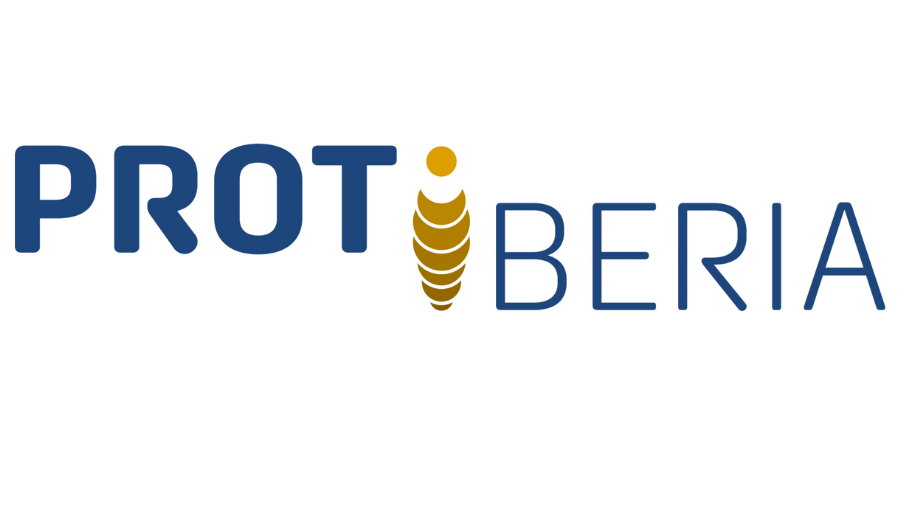
What about you? What do you think?
If you want to go for the natural option, contact us. We will provide you with all the information you need about our frass or the rest of our products.
References
Arias, J. P. (2018). Nuevos abonos a partir de excrementos de insecto: el caso del gusano de la harina (Tenebrio molitor). Ingeniería y Región, (19), 1-11. https://dialnet.unirioja.es/servlet/articulo?codigo=6973427
Poveda, J. (2021). Insect frass in the development of sustainable agriculture. A review. Agronomy for Sustainable Development, 41(1), 5. https://doi.org/10.1007/s13593-020-00656-x
https://fitomolina.es/2019/01/09/diferencias-insecticidas-biologicos-quimicos/

